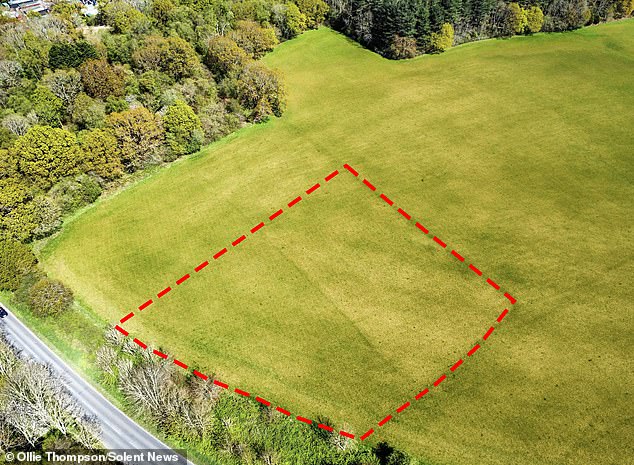A huge battery storage facility the size of two football pitches being built on protected green land will “destroy life as we know it”, furious villagers have warned.
People living in picturesque Chilworth, near Southampton, Hampshire, fear it will be a “disaster” and create a fire risk, which could cause toxic fumes near a nearby nursery and school.
But despite concerns from locals about the notorious tendency of lithium batteries to burst into flames, the council gave the green light to the plans during a fiery planning meeting that sparked the ire of one resident who stormed out.
Just yards from St Denys Church, which has bells dating back to the 1200s, plans for the “monstrosity” include a substation, a transformer, site entrances, internal access roads, security measures, access gates , other auxiliary infrastructure and landscaping.
The village, known as Celeworda in the Domesday Book, features thatched houses with average prices of more than £910,000.
A huge battery storage facility the size of two football pitches being built on protected green land will “destroy life as we know it”, angry villagers living in Chilworth, near Southampton, have warned.
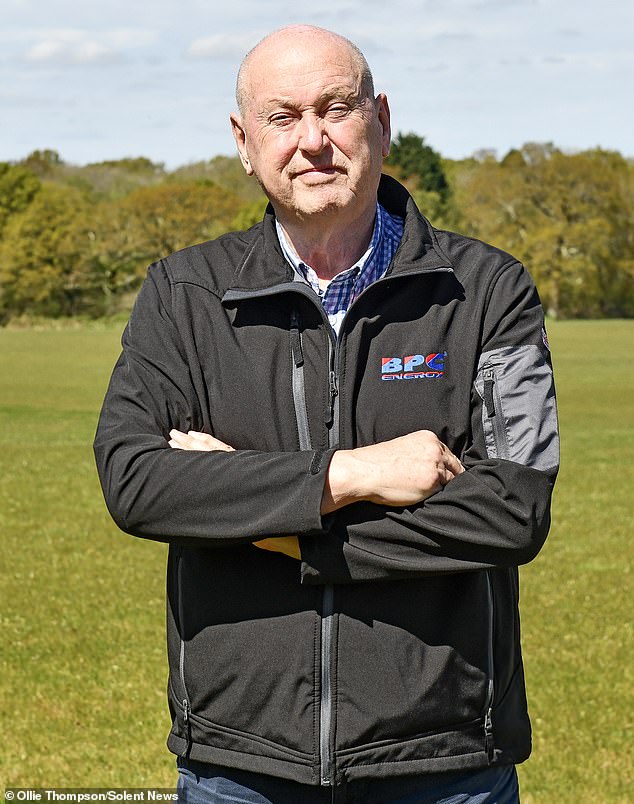
Malcom Henley, 71, a Chilworth parish councilor and battery engineer, fears it will “create a fire risk near our local nursery and school”.
Boom Development’s application was approved at a Test Valley Borough Council planning meeting, with one councilor saying “this is about our grandchildren and the future”.
The battery storage system, which will be built in a designated local green space between the villages, is designed to be charged at times of low demand via a nearby substation.
It can then be called upon when needed during more traditional peak times, early morning and evening, when people create a surge of energy by boiling kettles, cooking food and turning on televisions.
But Malcolm Henley, 71, who has been a battery engineer for more than 50 years, said: “This has nothing to do with renewable energy.
‘It is not respectful of the climate, it wastes energy. In fact, it takes time to load these damn things.
‘They argue that we have all this wind and hydropower, but it is being used due to a shortage of infrastructure on the National Grid.
“So that during peak hours they can satisfy the shortage of the National Network.”
Henley, who is also a Chilworth parish councillor, added that the facilities now approved are 15 per cent “inefficient” and lamented their location on green land.
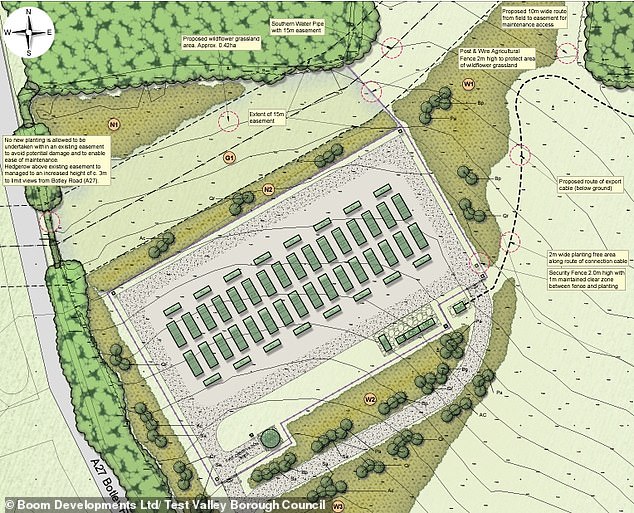
Battery storage facility plans including a substation, transformer, site access, internal access roads, security measures, access gates, other ancillary infrastructure and landscaping.
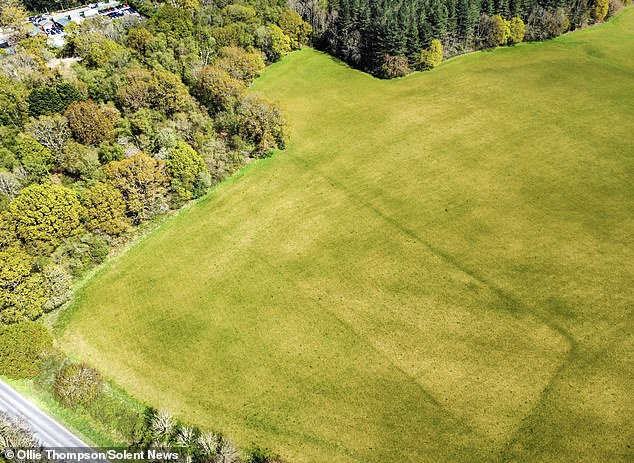
Locals raised concerns about the notorious tendency of lithium batteries to burst into flames, but the council gave the plans the green light.
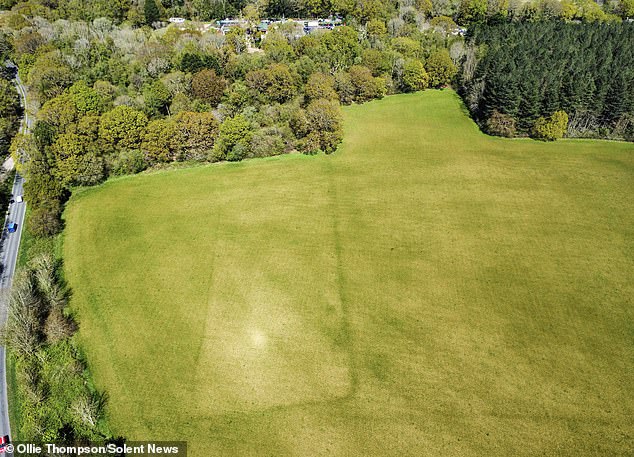
The battery storage system will be built in a designated local green space between the villages and is designed to be charged at times of low demand via a nearby substation.
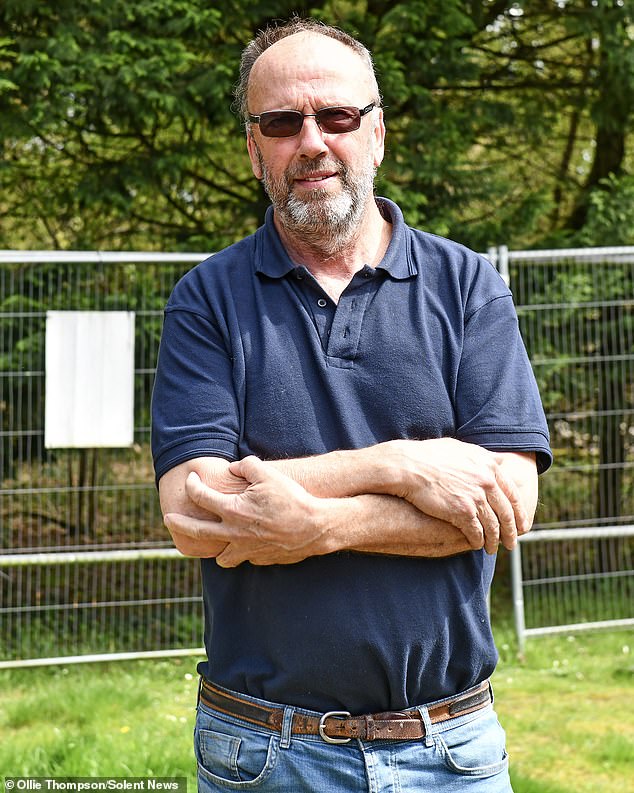
Baddesley resident Terry Newton, 65, is unhappy with the battery farm development. He said it’s a question of ‘if it catches fire, but when’
“This should be on abandoned land somewhere else,” he added.
‘Disaster will occur in the area; it will simply create an industrial center in the middle of a green space.
‘This will destroy life as we know it. It will have a detrimental impact on the local divide.
‘Its size is not compatible with the area. “It will create a fire risk near our local nursery and school.”
Land is being demolished to make way for underground cables that will take them to a substation more than 4 kilometers away.
“This does not favor an energetically sustainable project,” he added.
He said locals “bitterly object” to the “monstrosity” of a facility because it could “easily” have been built on an already approved site just four miles away in nearby Nursling.
“The committee has no knowledge of the technology,” he added.
‘They have been given a renewable energy program and they are simply following the national vision that was asked of them.
“This is a huge, fire-risk installation; it’s supposed to be done in an industrial environment.”
He also warned about lithium-ion battery fires, which are much more difficult to put out and “extremely dangerous” due to the fumes they emit.
“None of this has been taken into account,” he said.
‘After the utter frustration of the meeting, it has been one of bitter disappointment ever since.
“There seems to be a complete lack of understanding.
“We have nothing against lithium-ion technology, but they’re building it next to a school. It’s stupid.”
“This whole thing is a total disaster.”
Chilworth Cllr Philip Bundy said: ‘No one is arguing about the principle of this.
‘My main concern is that it is in the local gap.
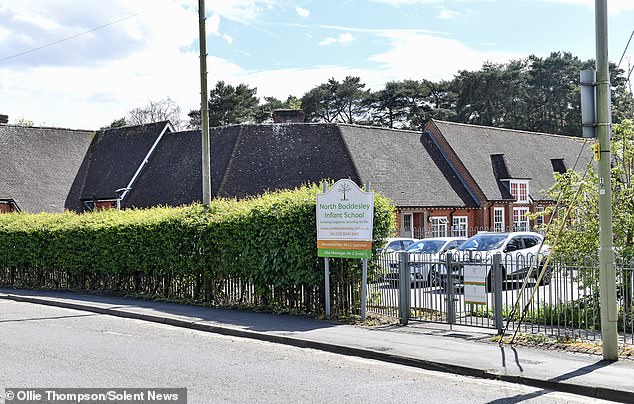
Others have feared the potential fire risk could cause toxic fumes to reach a nearby nursery (pictured).
‘We have a policy related to local gaps and I think defending that policy was justified.
‘This could be an environmental disaster if it went wrong. Once it catches fire, it can’t be put out, it’s not possible.’
Local owner Terry Newton, 65, said: “We’ve lived here since 1983, it’s such a beautiful place.”
‘Other councils, such as Devon, have prevented the construction of these farms.
‘It was Test Valley Council who voted for it, why don’t they do what other councils have done? All for the same reasons as our objections.
“Only one battery farm has caught fire in England, but it has happened many times in Europe. And if it catches fire we can’t put it out.
‘I don’t know if we can hear the humming from here, but we will walk past it every day because we have a dog.
‘We’re shocked – we don’t just live here and look at it from our back garden, we walk there every day.
“It’s not a matter of if it catches fire, but when.”
At the Conservative-controlled council meeting, Boom Development agent Nick Beddoe said: “There is a huge shortfall in electricity supply.
“Electricity demand will double between now and 2025.
‘This will increase the capacity of the local electricity grid.
“Each facility is essential to cope with demand: this will supply 25,000 homes at the same time.”
At the meeting, Liberal Democrat secretary Celia Dowden voted “reluctantly” to approve the plans, as she was one of seven to give it the green light.
Speaking afterwards, he said: ‘We totally understand residents’ feelings of anxiety and fear.
“No one pretends this is going smoothly.
‘We all know that this type of application is very new to us: we have to make difficult decisions.
‘We cannot ignore the consequences of climate change, we cannot continue to leave them by the wayside.
‘If the government says that to reach our net zero we need to store our electricity, we can’t say we don’t know.
‘It’s our job to make decisions that are not popular.
‘It’s about our grandchildren and the future.
“It’s up to us to make these difficult decisions and that’s what bothers residents: if it’s close to them and it’s okay if it’s somewhere else.”

